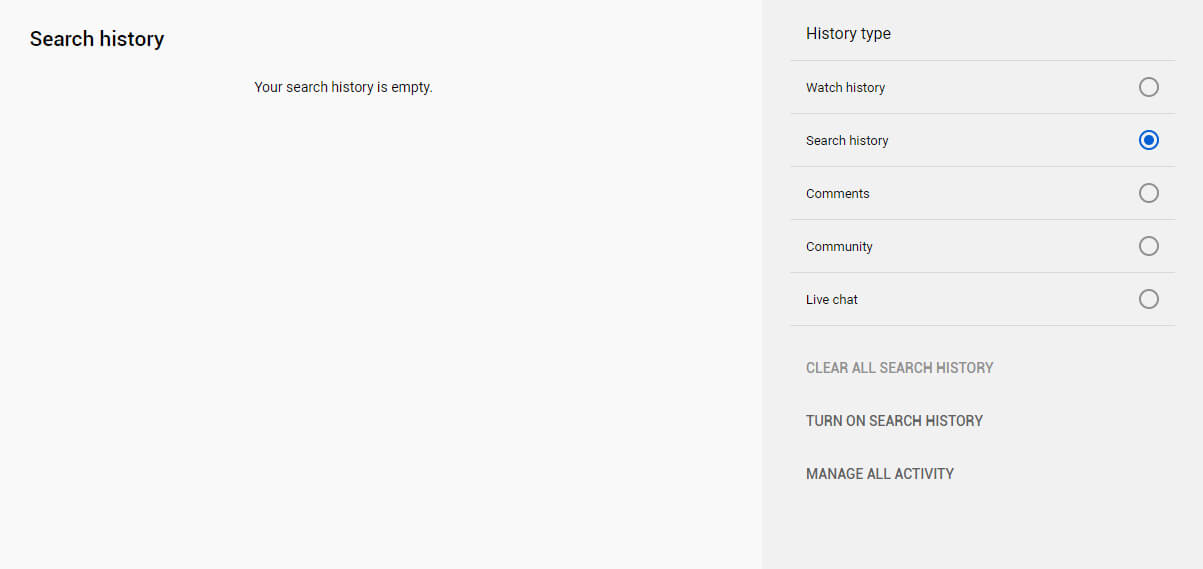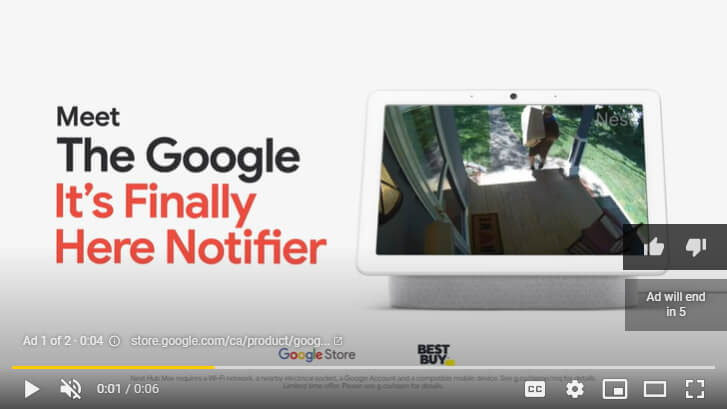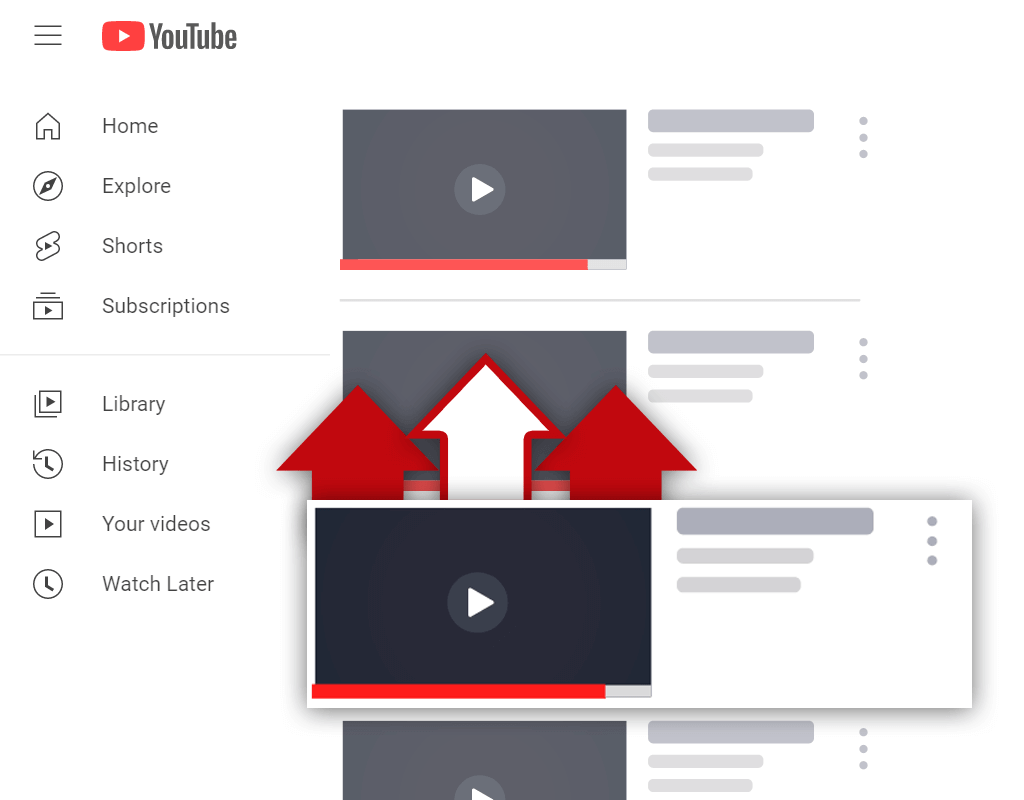How Does YouTube Determine What Ads to Show Me?
Oct 17, 2020
Have you ever thought to yourself: "How does YouTube determine what ads to show me?" If so, you wouldn't be the only one. Many viewers on YouTube have questions as to how YouTube selects which ads to show to them. Does YouTube show ads at random, or are there certain criteria that lead particular ads to be shown?
YouTube determines what ads to show to viewers based on a viewer's viewing history, viewing habits, location, and age. The goal of YouTube advertising is to show ads to targeted users. Due to this, YouTube monitors your account to determine which ads would be worth showing to you.
In comparison to other platforms, YouTube does a good job of not collecting too much data from users. However, as I mentioned, YouTube does monitor the activities and habits of its users to determine what ads they should be shown. But what exact activities and habit does YouTube monitor, and to what extent?
Are YouTube Ads Random

The question: "Are YouTube ads random?" is a question that pops up a lot online. Many people view YouTube advertising in the same way as advertising on T.V. While both YouTube and T.V. advertising are similar, they are also quite different. With YouTube advertising, ads are delivered to audiences not at random but based on different criteria.
Think of things from the perspective of the business or individual paying for the YouTube ads. Would it make sense for them to pay to have their ads shown to everybody? Or, would it make more sense for their ads to be shown to people who are likely to respond positively to them?
The goal with advertising isn't to dump money somewhere, it's to generate a positive return on investment (ROI). Knowing this, it's safe to say that YouTube does not show ads at random. Ads are shown to particular users based on different pieces of collected data, and data is collected as a user uses YouTube.
Are YouTube Ads Based on Search History

Okay, so YouTube ads aren't shown at random. This leads us to another question, however, which is: Are YouTube ads based on search history? After all, what a user searches for would be a good indication of what the user is interested in, right? While this is the case, YouTube tends to show ads based on other factors.
While YouTube mostly shows ads based on other factors, search history does play a role. You see, one of the major ways users on YouTube discover content is through the YouTube search engine. Knowing this, you might be able to see how search history would technically play a role in determining what a user is interested in.
In regards to whether or not ads are based directly on search history, however, this isn't the case. If you type something into the YouTube search bar, this doesn't provide YouTube with much information about your interests. After all, YouTube is a video content platform, so what you watch is more important to YouTube than what you type.
What Are YouTube Ads Based On

If they aren't based on search history on YouTube, then what are YouTube ads based on? Well, YouTube ads are based on quite a few different things. As I stated earlier, YouTube's goal is to help advertisers generate a positive ROI. The easiest way to do this is to show the right ads to the right users.
YouTube ads are primarily based on:
- Video viewing history
- Website visiting history
- Video interactions
- Age, location, and gender
Let's break down each of these things in more detail.
Video Viewing History
Video viewing history has the largest impact on the ads you are shown. A user's viewing habits say a lot about the user and their interests. Being that YouTube is a video-focused platform, they've devotes a lot of their resources to gathering information about users through the videos they consume.
For example, if you're always watching hockey videos, this will tell YouTube that you are interested in hockey-related topics. So, when an advertiser pays to display their hockey-focused ad on YouTube, the ad will be shown to you and other YouTube users with the same interest.
Website Visiting History
Ads on YouTube aren't only shown to users based on their video viewing history. Advertisements are also shown to users based on their website visiting history, usually in the form of remarketing ads. Essentially, these ads are designed to be shown to users who have already visited a particular website or webpage, in hopes of re-engaging them.
Not every website will track your visit to a page on their website. Only websites set up to do so will be able to run ads to you on YouTube. This might seem like YouTube is following you around wherever you go, however, this isn't the case. What's happening is that each website is tracking when you visit a page and showing ads to you afterward.
Video Interactions
Advertisers can show ads to users based on whether or not they are a subscriber of a channel or have liked a video from a channel. These ads are usually remarketing ads designed to get in front of the most targeted and engaged users of a channel. Usually, this data is gathered during a 30, 60, 90, or 120 day time period.
If you have recently subscribed to a channel, that channel can then display specific ads to you and other users who have also recently subscribed. This is a great way for an advertiser to show ads to the freshest users. Meaning, if you've subscribed to a channel in the last 28 days, chances are the channel is still at the top of your mind.
Age, Location, and Gender
The final criteria that determine which ads you are shown are your age, geographical location, and gender. These data items are quite general, so they are typically used to split-test different ads against each other to determine which audiences respond the best to certain messages.
It wouldn't make much sense for a French-speaking 25-year-old man to get shown ads in the English language about high heels made for 60-year-old ladies. YouTube knows this, so they give advertisers the ability to select which users they want an ad to be shown based on their age, location, and gender.
Conclusion
An advertiser can get very targeted with the ads they run on YouTube. With all the data YouTube collects about users, ads can be tailored to each user's interests. If you've ever asked yourself the question: "How does YouTube determine what ads to show me?" then you should now have your answer.


